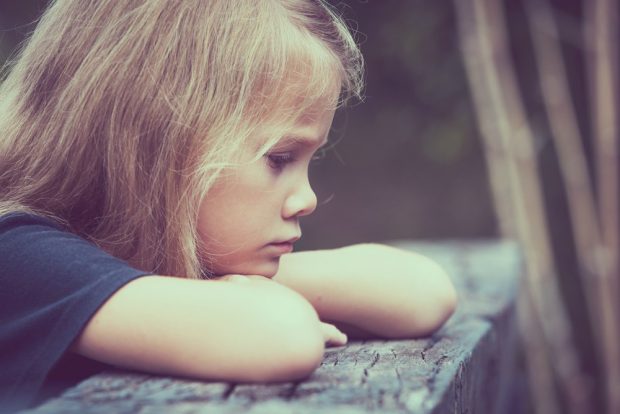Complex issues can leave a family feeling hopeless. Teens and young adults are struggling with high levels of anger, anxiety, fear, and isolation; they’re failing or have dropped out of education, abusing drugs or alcohol increasingly, and are often considered a let-down. Parents feel like they’ve done everything and there’s nowhere else to go. They’ve given up and, in a sense, start grieving for the worst outcome.
This led to the launch of The Wave Clinic. To provide a place where families and young girls and young boys can go, especially when they seem to be failing other treatment options. Longevity’s Gisèle Wertheim Aymes spoke to one of its co-founders, Fiona Yassin. She’s a specialist in trauma treatment, eating disorders, mental health, and addiction treatment for teenagers, young adults, and families.
How mental health impacts the family unit
It is now well recognized that mental illness is a significant issue, and the impact of such problems is increasingly recognized. Approximately one in five people will experience a mental health disorder every year, with the most common disorders being anxiety and depression. The effects on families can be significant, and the quality of support and service delivered to families and affected family members is crucial.

Photo by Priscilla Du Preez on Unsplash
“I think one of the beautiful things is that people are speaking more about mental health. It’s not something that you only have when it goes wrong, you need to look after it when it’s going well. The fact that we’re talking about it now doesn’t just mean that those people will get help at this end as a ruler. Rather, it means that we can take preventative steps at this end of the room to try and kind of stop things from getting too far out of shape”, Says Yassin.
Our behavior has consequences for the whole family
Mental health issues can be an extremely painful and traumatic time for the whole family and have a huge impact on a family’s financial and emotional components. When it comes to mental illness, the emotional and behavioral consequences for family members go largely ignored. It is clear that individuals’ mental health problems have consequences for others within their social networks, most notably, their family.
“So, in some families, people have really felt that they were gripping onto the edge. Just managing to get through each month now, whether that was a mental health crisis, or whether that was a financial crisis, or whatever was happening, people have had this essence of really holding on for dear life, and in some cases, quite literally”.
Mental and emotional development in children
Family conflict is damaging to young children who are still developing physically and emotionally. Children need to feel safe to develop appropriate attachment and emotional responses. If the caregiver does not provide a safe environment, the child’s brain develops differently, causing the child to constantly be on alert. This can result in post-traumatic stress syndrome, anxiety, or depression.

Households with high levels of family conflict often neglect young children, either showing negative behavior or limiting their interactions and play. This can create deficits in cognitive development leading to learning disabilities or children starting school behind grade level. Children that go through neglect due to family conflict, such as an alcoholic or mentally ill parent, also have more behavioral problems that can lead to problems at school.
“You know, unfortunately, in all the very grim results of addiction during the past two years, we then start to look at children who are spending their time, which has now been a couple of years, within an environment where people are emotionally unavailable because when you’re drunk or high, or whatever is going on, you’re not able to be present. So yes, we’re all locked in the same house.
Locked in our own worlds
But we’re all completely locked in our own worlds. If you can imagine being a little person, or even a slightly bigger person, or a teenager with some needs, and mum and dad are both emotionally unavailable, they’re either working longer hours, because they feel that they have to know there’s no beginning and end.
“Then there might be a sort of picking up a glass of wine earlier than they would classify morphing into a bottle, or however they were coping with what was going on. You’ve got people who are not available for their children, which has been really tough”.
At least one in five youth ages nine to 17 has a diagnosable mental health disorder. One in ten has a disorder that causes considerable impairment. Only one-third of these adolescents receive the required care.
Anxiety and depression

Maridav/Shutterstock
Family conflict can have long-lasting effects, even if children are older. Family dysfunction, including marital stress, negative parenting strategies such as violence, and psychological manipulation, are predictors of anxiety disorders later in life.
“I think first, we need to acknowledge what it is for us. That has been tricky or has been difficult. Because if we’re not talking about it, if we’re not exploring it for ourselves, and we’re just going to put it under the carpet, it’s not really going to go away. It’s going to keep coming back and getting us, so the first thing really is to unpack our baggage, the things that we’ve been holding on to really tight for the last couple of years”.
Putting families back together
We offer high-quality and individualized care for the youth themselves, but also for the family. The program has a family week every 5 weeks.
“So, help is more accessible more than it’s ever been. There are more support services than I think they’ve ever been. And the only way that they’re going to stay there is if we continue supporting those people. Nobody’s going to turn up every week and give their time free if nobody’s going and showing up for their sessions because they can”
The potential of hope and learning to do life differently
After a crisis, recovery can be challenging. Our lives are left in turmoil caused by the stressful situation we just managed to overcome. With the worst behind us, we have to pick up the pieces. But unfortunately, there’s no one-size-fits-all formula for how to take steps toward the future.
“I think the next few years are going to really be about learning where we are and how we’re doing that. For those families who did really struggle through that time of repair, it’s not going to happen overnight. Just because borders are open doesn’t mean that the incomes lost, or the time lost, or the relationships lost, magically going to repair themselves”.
Moving forward
There’s no right or wrong way to recover from your mental health. The goal is to lessen stressful situations in order to create more peaceful ones and increase your wellness. Getting organized and creating an action plan is a great way to start a new beginning in your life.
Going through a crisis is one of the hardest parts of living with mental illness, so if you can get through that, you can also get through this process of moving forward.
WATCH THE INTERVIEW
The video interview contains the full dialogue of this interview, and you can watch it below.
View this post on Instagram
About Fiona Yassin
 Fiona Yassin is the International Program Director at The Wave. She is a U.K. and International registered Psychotherapist and Accredited Clinical Supervisor (U.K. and UNCG). Fiona is EMDR trained (EMDRIA) and practicing Trauma therapist. She is also a member of the International Chapter of IAEDP. Trained in CBTe (Oxford Group), FREED (King’s College, London), TF-CBT, RO-DBT, GPM. She has extensive experience in the treatment of Eating Disorders and Borderline Personality Disorder.
Fiona Yassin is the International Program Director at The Wave. She is a U.K. and International registered Psychotherapist and Accredited Clinical Supervisor (U.K. and UNCG). Fiona is EMDR trained (EMDRIA) and practicing Trauma therapist. She is also a member of the International Chapter of IAEDP. Trained in CBTe (Oxford Group), FREED (King’s College, London), TF-CBT, RO-DBT, GPM. She has extensive experience in the treatment of Eating Disorders and Borderline Personality Disorder.
Fiona has further specialist training in the treatment of families in High Conflict Divorces and in Psychiatry across the female lifespan. Fiona us a Fellow of APPCH, a senior accredited Addiction Professional and member of The Association of Child Protection Professionals.
Main Photo Credit:
Photo by Suhyeon Choi on Unsplash



 Fiona
Fiona![women [longevity live]](https://longevitylive.com/wp-content/uploads/2020/01/photo-of-women-walking-down-the-street-1116984-100x100.jpg)










